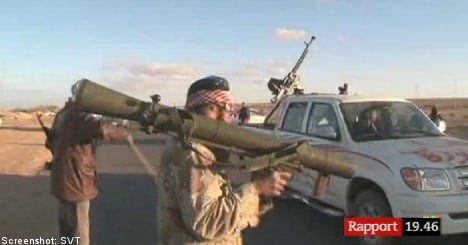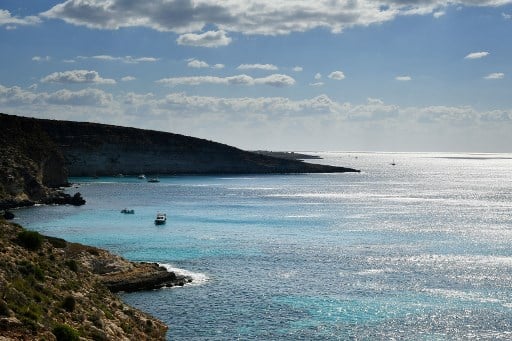At least two foreign television reports of the fighting in Libya have shown rebels carrying older models of the Carl Gustaf recoilless rifle, according to Sveriges Television (SVT).
“First and foremost we have to identify the weapon, it that’s possible, but I can rule out that it came to Libya legally,” Andreas Ekman Duse, head of the Swedish Agency for Non-Proliferation and Export Controls (Inspektionen för strategiska produkter – ISP), told SVT.
Manufactured by Saab Bofors Dynamics, Sveriges, the Carl Gustaf was first developed in 1947 and introduced into Swedish service in 1948. It has since been sold around the world and has featured in conflicts such as the Falklands War and Afghanistan.
Officials at ISP suspect that at least one of the two Carl Gustaf rifles featured in the television reports was manufactured in the 1960s or 1970s and likely ended up in Libya via the UK, which previously had a licence to manufacture the weapon.
According to Ekman Duse, neither the UK nor any other country licenced to produce the Carl Gustaf exported the weapon.
Anna Ek, chair of the Svenska Freds- och skiljedomsförening (‘Swedish peace and arbitration society’) expressed concern over the revelations that Swedish-made weapons were being used in the Libya conflict.
“I was really surprised because there’s been a UN-embargo against Libyafor a long time and Sweden, which says it has tight controls of arms exports, shouldn’t have sold weapons that ended up in Libya,” she told SVT.
ISP spokesperson Diana Malm confirmed for The Local that, based on the images seen by the agency, the weapon does appear to be a Carl Gustaf.
“But in all probability it is a model that was manufactured in the UK through a licencing agreement,” she said.
She explained that arms trade regulations in place at the time the weapon in question was likely produced are very different than rules currently in place.
Between the mid-1960s and mid-1980s, ISP’s predecessor agency had an agreement with the British War Office allowing for the Carl Gustaf to be made in the UK.
Under the agreement, the UK also had the right to sell the weapons to British colonies. In addition, purchasing countries had 10 years to do what they wanted with the weapons, including re-exporting them to third countries.
According to Malm, Sweden’s current arms export laws “look totally different” than those in place at the time the Carl Gustaf seen in images from the fighting in Libya was likely manufactured.
Among other things, purchasing countries must agree not to re-export weapons purchased from Sweden, she explained.
She added, however, that the ISP continues to investigate the matter in hopes of determining exactly where the Carl Gustaf anti-tank rifles seen in the television images were made and how they ended up in Libya,
Last Thursday the ISP announced Sweden was halting weapons exports to two states in the Middle East and North Africa.
The day before, the agency reported Sweden saw its military equipment exports rise one percent to 13.7 billion kronor ($2.15 billion) in 2010.



 Please whitelist us to continue reading.
Please whitelist us to continue reading.
Member comments